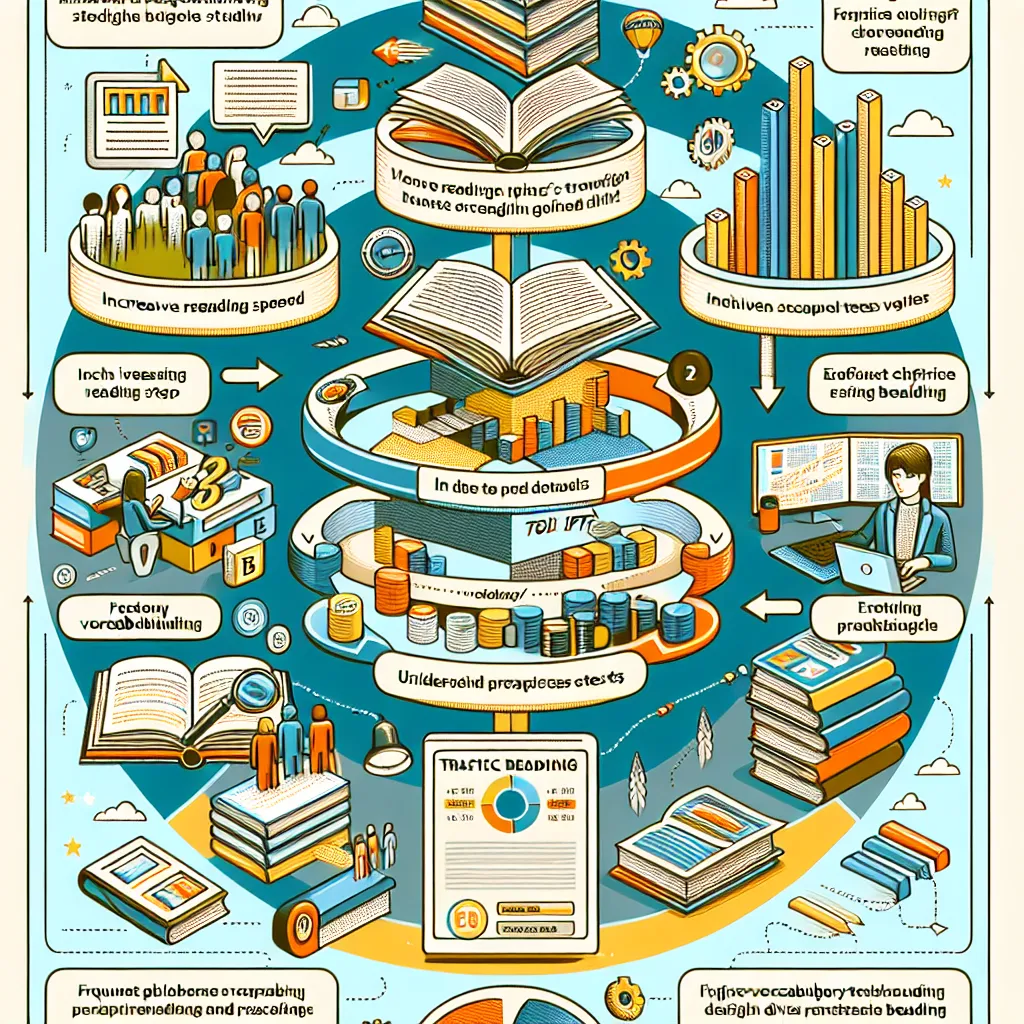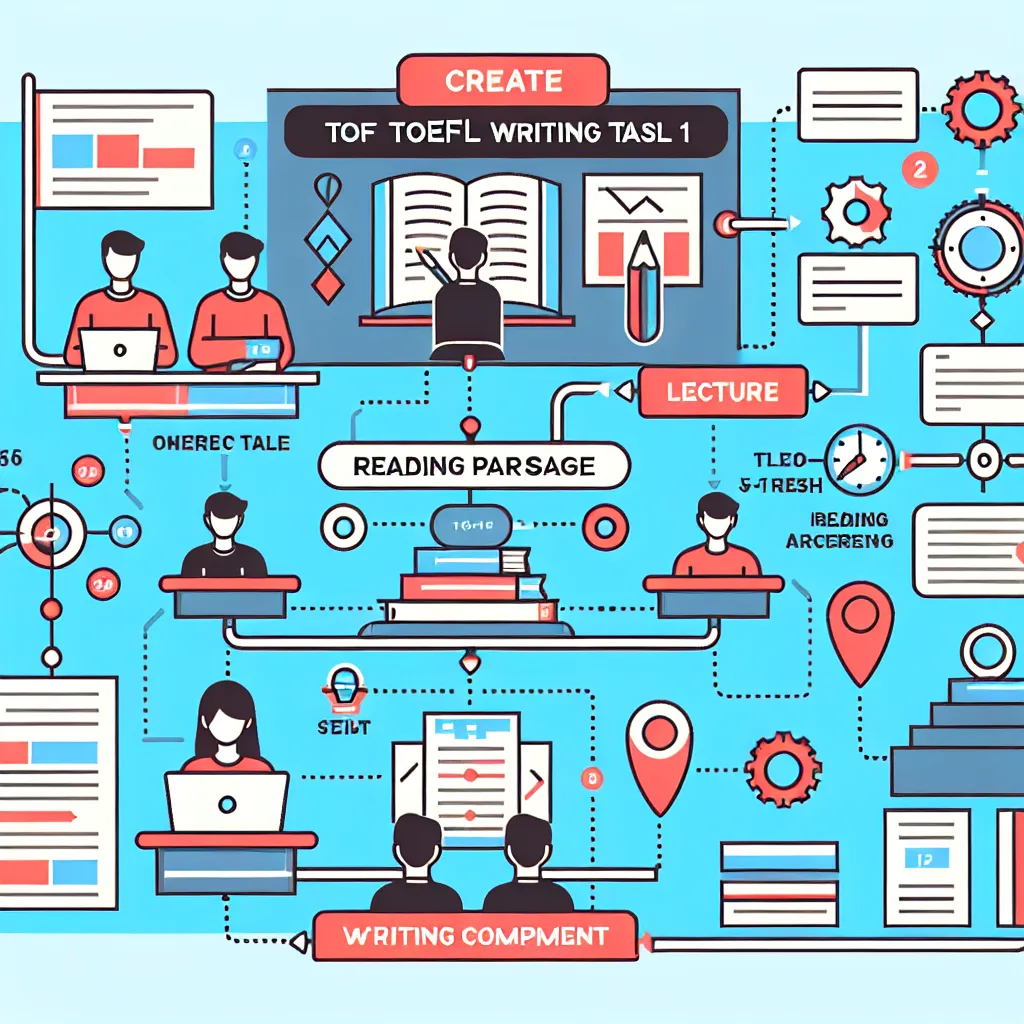The TOEFL iBT Reading section is a crucial component of the test that assesses your ability to understand and analyze academic texts. To excel in this section, you need to develop specific skills that will help you navigate through complex passages and answer questions accurately. In this comprehensive guide, we’ll explore the key skills required for success in the TOEFL iBT Reading section and provide strategies to enhance your performance.
Understanding the TOEFL iBT Reading Section
Before diving into the key skills, it’s essential to understand the structure and content of the TOEFL iBT Reading section. This section typically consists of 3-4 academic passages, each followed by 10 questions. You’ll have 54-72 minutes to complete the entire section, depending on the number of passages.
 TOEFL iBT Reading Section Overview
TOEFL iBT Reading Section Overview
Key Skills for TOEFL iBT Reading Success
1. Skimming and Scanning
Skimming and scanning are fundamental skills that allow you to quickly grasp the main ideas of a passage and locate specific information.
- Skimming: Quickly read through the passage to get a general understanding of the topic and main ideas.
- Scanning: Rapidly search for specific words, phrases, or information within the text.
Practice these skills by setting time limits for reading newspaper articles or academic texts, focusing on identifying key points and finding particular details.
2. Vocabulary in Context
A strong vocabulary is crucial for understanding academic texts. However, the TOEFL iBT Reading section often tests your ability to decipher the meaning of unfamiliar words using context clues.
- Pay attention to surrounding words and sentences to infer the meaning of unknown terms.
- Look for synonyms, antonyms, or explanations within the passage.
- Practice reading various academic texts and try to guess the meanings of unfamiliar words before looking them up.
3. Identifying Main Ideas and Supporting Details
Being able to distinguish between main ideas and supporting details is essential for answering questions accurately.
- Look for topic sentences, usually found at the beginning or end of paragraphs.
- Identify key words and phrases that signal important information.
- Practice summarizing paragraphs in your own words to extract the main ideas.
4. Making Inferences
The TOEFL iBT Reading section often includes questions that require you to make inferences based on the information provided in the passage.
- Look for clues and evidence within the text to support your conclusions.
- Practice reading between the lines and drawing logical conclusions from the information presented.
- Engage in critical thinking exercises to improve your inferential skills.
5. Understanding Text Organization and Structure
Recognizing how a passage is organized can help you navigate through the text more efficiently and answer questions about the author’s purpose or the overall structure of the passage.
- Identify common organizational patterns such as cause-effect, compare-contrast, or problem-solution.
- Pay attention to transition words and phrases that signal relationships between ideas.
- Practice outlining passages to understand their structure better.
6. Recognizing Paraphrasing and Synonyms
The TOEFL iBT Reading section often presents answer choices that paraphrase information from the passage. Developing the ability to recognize paraphrased ideas is crucial.
- Practice restating sentences in your own words without changing their meaning.
- Build your vocabulary by learning synonyms for common academic words.
- Pay attention to how ideas are rephrased in different contexts.
7. Time Management
Effective time management is critical for success in the TOEFL iBT Reading section. You’ll need to balance thoroughness with efficiency to complete all questions within the allotted time.
- Practice reading passages and answering questions under timed conditions.
- Develop a strategy for allocating time to each passage and set of questions.
- Learn to prioritize easier questions and manage your time on more challenging ones.
Strategies for Improving Your TOEFL iBT Reading Skills
Now that we’ve identified the key skills, let’s explore some strategies to enhance your performance:
-
Read extensively: Expose yourself to a variety of academic texts in different subjects to build your reading stamina and vocabulary.
-
Take practice tests: Familiarize yourself with the format and timing of the TOEFL iBT Reading section by taking full-length practice tests.
-
Analyze your mistakes: Review incorrect answers to understand where you went wrong and how to improve.
-
Use active reading techniques: Underline key points, make notes, and ask yourself questions as you read to engage more deeply with the text.
-
Build your academic vocabulary: Focus on learning common academic words and phrases that frequently appear in TOEFL passages.
-
Practice speed reading: Gradually increase your reading speed while maintaining comprehension to improve your efficiency.
-
Develop a personal note-taking system: Create a method for quickly jotting down main ideas and important details as you read.
 TOEFL iBT Reading Improvement Strategies
TOEFL iBT Reading Improvement Strategies
Common Pitfalls to Avoid
As you prepare for the TOEFL iBT Reading section, be aware of these common mistakes:
- Spending too much time on difficult questions or passages
- Relying solely on prior knowledge instead of information from the passage
- Overlooking important qualifying words like “not,” “except,” or “unless” in questions
- Choosing answers based on personal opinion rather than the passage content
- Failing to manage time effectively, leading to unanswered questions
By focusing on developing the key skills outlined in this guide and implementing the suggested strategies, you’ll be well-prepared to tackle the TOEFL iBT Reading section with confidence. Remember, consistent practice and a systematic approach to improvement are essential for achieving your desired score.
Next Steps
To continue improving your TOEFL iBT Reading skills:
- Create a study schedule that includes regular reading practice and skill-building exercises.
- Take timed practice tests to monitor your progress and identify areas for improvement.
- Join a TOEFL study group or find a study partner to discuss passages and practice together.
- Consider using TOEFL iBT preparation materials for structured practice and expert guidance.
By dedicating time and effort to honing these key skills, you’ll be well-equipped to excel in the TOEFL iBT Reading section and achieve your target score. Remember that improvement takes time, so be patient and consistent in your preparation. Good luck with your TOEFL iBT journey!




